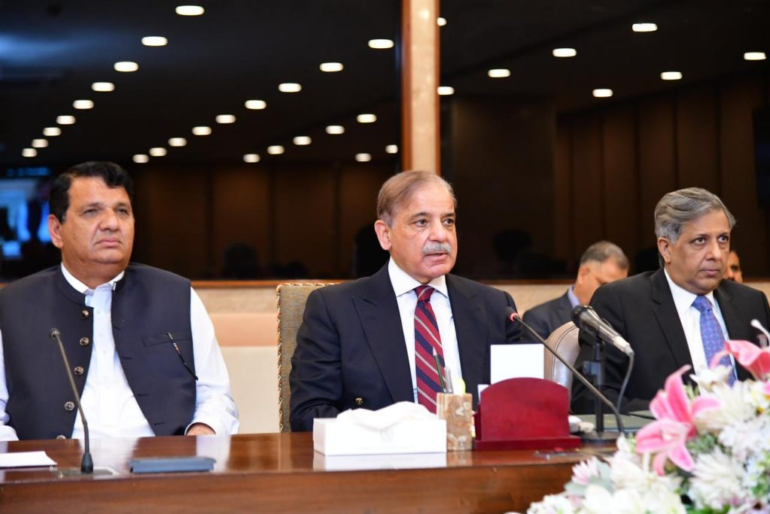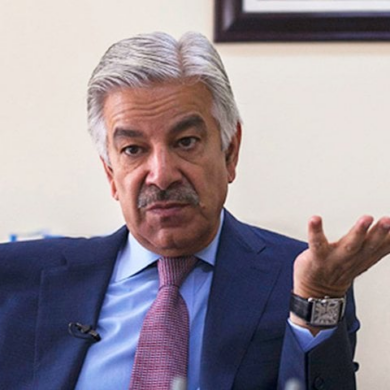Former Saudi Arabia Ambassador to Pakistan Dr, Ali Awadh Asseri has lauded Prime Minister Shehbaz Sharif for successfully navigating challenging landscape that evolved after he held the reins of the country.
“Sharif faced significant challenges upon taking office in April last year, inheriting a country on the verge of financial default. Dealing with the subsequent political turmoil, a renewed wave of terrorism and a serious deterioration in Pakistan’s relations with major powers and trusted allies was also a daunting task. But he has been able to successfully navigate this complex landscape by engaging coalition leaders, the security establishment and key foreign partners,” said the ambassador in his article which published in a leading media in the Gulf “Arab News”
He said as a result, Pakistan was now stable enough to transition smoothly toward a caretaker setup, which would hold the next general election. Political turmoil has receded since the appointment of Gen. Asim Munir as the chief of the army staff in November.
The ambassador mentioned a new staff-level agreement with the International Monetary Fund, worth $3 billion for a period of nine months.
“Although terrorism has seen a resurgence, enhanced security structures are now in place to combat this threat. And the China-Pakistan Economic Corridor stands revived, while relations with the US are also back on track,” he wrote.
the civil-military collaboration has expanded to the economic sphere, giving renewed momentum to Pakistan’s economic partnership with the leading GCC economies.
Since 2019, Saudi Arabia, China and the UAE have offered concessional loans worth several billion dollars to shore up Pakistan’s foreign reserves. These loans have subsequently been rolled over to meet the IMF demand. The latest IMF deal became possible after Saudi Arabia deposited an additional loan of $2 billion in the State Bank of Pakistan, the daily added.
Writer of the article Dr, Ali Awadh Asseri has served as Saudi Arabia’s ambassador to Pakistan from 2001 to 2009.
The article said the Kingdom has always stood by Pakistan through thick and thin. The Special Investment Facilitation Council offers a viable pathway in this respect. Its establishment indicates that Pakistan’s civilian and military leaders understand the risk of dependency on foreign loans. And they are preparing to lay down a solid economic base through attracting investment from friendly countries.
The article added that political instability results in frequent changes of government and the consequent lack of continuity in economic policies. These issues have plagued major investment commitments by Saudi Arabia, the UAE and Qatar in the recent past. While visiting Islamabad in 2019, Crown Prince Mohammed bin Salman pledged $20 billion of investment in the energy, minerals and mining sectors. Likewise, the UAE and Qatar have committed $9 billion. But these pledges are yet to materialize due to cumbersome procedures and structural impediments.
Going forward, the Comprehensive Economic Partnership Agreement with the UAE needs to be emulated in Pakistan’s trade links with Saudi Arabia and the other GCC members. Pakistan’s skilled manpower in the IT and services sectors is a perfect match for the economic transformations taking place in the Gulf, particularly Saudi Arabia.
“Prime Minister Shehbaz Sharif of Pakistan is nearing the end of a challenging yet fruitful tenure, marked by major policy decisions. One of his strategic moves was to deepen investment and trade ties with Saudi Arabia, the UAE and Qatar,” the article said adding these leading economies of the Gulf Cooperation Council have also demonstrated a willingness to contribute to Pakistan’s economic stability and revival.
Pakistan has always prioritized economic, defense and cultural relations with the Kingdom and other Gulf nations. This historically rooted relationship is based on the common bonds of religion and culture, mutually beneficial economic needs and shared strategic interests in regional stability and global peace.
The GCC region plays a crucial role in Pakistan’s economy, serving as the primary source of energy imports and foreign remittances. It is also home to the largest number of Pakistani expatriate workers.



